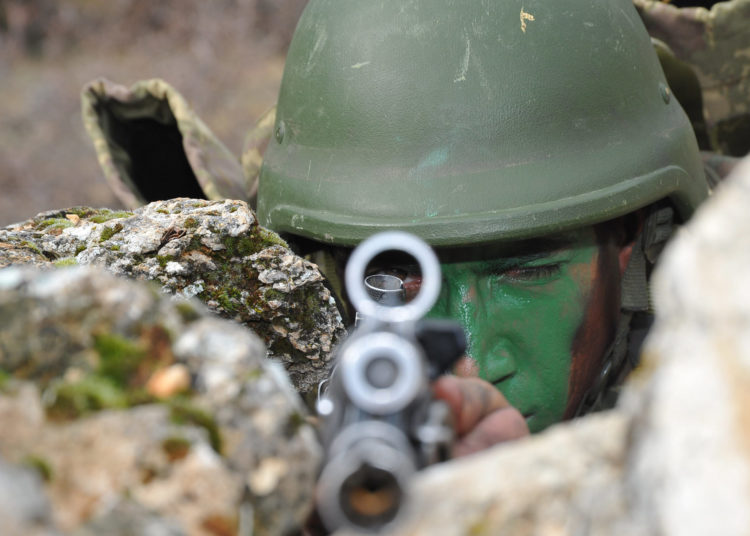Nordic Monitor
The Turkish government secretly investigated a high-profile military delegation from Portugal, a NATO ally, as part of a probe into a failed coup in Turkey on July 15, 2016, secret documents have revealed.
According to the documents, obtained by Nordic Monitor, a delegation headed by the deputy commander of the Portuguese General Staff Joint Operations, Maj. Gen. Jose Manuel Cardoso Lourenco, planned to visit Turkish Special Forces headquarters in Ankara July 19-22, 2016.
Only nine days after the abortive putsch, Turkish police launched a secret probe into the delegation and requested from the Turkish 4th Corps Command all information about the actions taken and the instructions received regarding the Portuguese delegation’s visit to Turkey, as part of a coup investigation under way by the Ankara Chief Public Prosecutor’s Office under case file No. 2016/103579.
The Portuguese delegation consisted of five military officers of various ranks, serving mainly in the Portuguese special forces. The visit was a part of the official foreign visit plan for 2016 and within the scope of information exchange and expansion of the relationship between the two armed forces. Portugal, as a founding member of NATO, had been working closely with Turkey in the operational areas of NATO since the 1950s.
Gen. Lourenco’s delegation consisted of Col. Artur Alves, Lt. Col. Nelson Soeiro, Maj. Ricardo Silva and Capt. Antonio Farinha. The General Staff Special Forces Command dispatched an urgent message on July 15 at 17:30 to the Central Command in Istanbul and Ankara ordering them to facilitate their entry into Turkey and to provide VIP services for them.
A colonel was assigned as the point man who would coordinate their welcome and departure. The flight itinerary of the Portuguese delegation was included in the message. It is not clear if the visit actually took place during the tumultuous days in the aftermath of the failed coup. But Turkish police chief Orhan Özdemir, the department head of the organized crime and smuggling unit in the national police headquarters in Ankara, wrote to the 4th Corps Command on July 24, 2016 asking for an explanation of various messages including one concerning the Portuguese delegation’s planned visit to Turkey. He noted that he was acting under the orders of the prosecutor’s office.
After the failed coup in 2016, NATO allies, especially the United States, were accused by Turkey of involvement in the attempt, and similar probes were initiated against US and British military officers who had nothing to do with the limited mobilization in July 2016. These allegations were made publicly by Turkish government officials at various times.
While the events were still unfolding on the night of July 15, Turkish Interior Minister Süleyman Soylu was quick to point the finger at the US as the mastermind of the coup attempt on a national TV network. A few days after the failed coup, Defense Minister Fikri Işık claimed that NATO needed to engage in some self-criticism about its stance on the night of July 15. In August 2017 professor of constitutional law Burhan Kuzu, a senior member of President Recep Tayyip Erdoğan’s governing Justice and Development Party (AKP) and his advisor, asked prosecutors to investigate NATO and İncirlik Airbase in connection to the failed coup.
Using the attempt as a pretext, the Islamist government of President Erdoğan has fired some 400 senior military staff who had served at NATO posts in Europe and the United States. Most who were recalled to Turkey after the failed coup were dismissed from the service upon their arrival, arrested, imprisoned and tortured. After these dismissals, NATO’s top commander, US Army General Curtis Scaparrotti said the military purge in Turkey had “degraded” NATO and that he did not believe the Turkish personnel sacked from the NATO command were involved in July’s abortive coup.
On May 1, 2019 Nordic Monitor published a report revealing the Turkish intelligence documents about how Turkey secretly investigated US troops deployed in Turkey as a part of a probe into the coup attempt. Turkish prosecutors evaluated all the US troops’ routine activities as relevant to the coup investigation, similar to the probe of the planned visit by the Portuguese delegation.
Turkey has experienced a deepening human rights crisis over the past four years with a dramatic erosion of the rule of law and the democratic framework according to the Human Rights Watch 2020 annual report. After the failed coup, more than 130,000 public officials including governors, judges, teachers and soldiers were dismissed from their jobs and some 60.000 people were detained on allegations of terrorist activity.
Following the coup attempt, Erdoğan removed almost all senior officers from the Turkish Armed Forces while allowing Islamists and neo-nationalists to gain ground. This policy deeply impaired ties with NATO, and Turkey instead developed closer relations with Russia.
Many believe the coup attempt was in fact a false flag event orchestrated by Erdoğan and his military and intelligence chiefs to set up the opposition for mass persecution, change Turkey’s parliamentary system into an imperial executive presidency and push for a military incursion into Syria.












